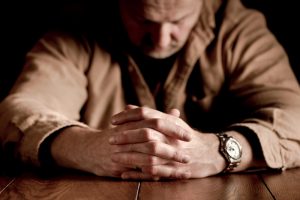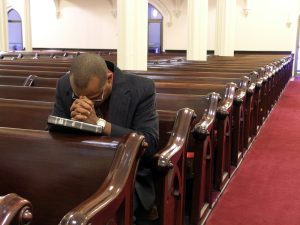I. Introduction
The phenomenon of false mystics and prophets has been a recurring theme throughout various religious traditions, often causing significant disruption within their communities. This essay endeavors to unpack the complex motivations and tactics employed by such figures, revealing their methods for manipulating belief and sustaining followings. At the heart of this inquiry lies the concept of taḥqīq, as articulated by thinkers like Ibn ‘Arabi, which serves both as a framework for spiritual verification and an instrument of political imperatives in periods of religious diversity, particularly in the Mughal Empire with the contributions of Abu al-Fazl (Pye CB, 2022). Additionally, the figure of the trickster, exemplified in diverse cultural narratives, poses questions about authenticity and authority in spiritual contexts, suggesting that false mystics often mask their teachings under the guise of established religious norms (Latif J, 2020). Through this exploration, we will delineate the telltale signs that differentiate true mystics from their fraudulent counterparts.
Many times, not even on a grander scale, we can come across individuals who proclaim seeing God, or claiming visions of a saint. Whether on a grand cult like scale, or within individual meetings, proper discernment is always key with those who claim private revelation. Pastors, spiritual directors and Christian Counselors can help guide the faithful in the discernment process of discovering true and pious messages. Please also review AIHCP’s Christian Counseling Certification and see if it meets your academic and professional goals.
A. Definition of mysticism and prophecy
Understanding the definitions of mysticism and prophecy is crucial when distinguishing true spiritual leaders from false ones. Mysticism generally refers to a direct, personal experience of the divine or transcendent reality, characterized by profound insights and a deep sense of unity with the cosmos. In contrast, prophecy involves receiving messages or revelations intended to guide others, often relating to future events or divine will. Both concepts have historical roots in various Abrahamic traditions, which have influenced each other in significant ways (Wollenberg RS, 2024). However, as the Enlightenment ushered in a reevaluation of religious authority, the definitions of mysticism and prophecy also evolved, reflecting a growing skepticism towards dogma and an emphasis on individual spiritual experience (Dom JPínguez, 2016). This nuanced understanding enables a critical approach to assessing spiritual claims, thus aiding in the identification of signs associated with false mystics and prophets.
B. Importance of distinguishing true from false mystics and prophets
In the contemporary spiritual landscape, the distinction between true and false mystics and prophets is paramount, as the proliferation of misleading narratives can lead followers astray. True mystics often exhibit selflessness and a profound commitment to truth, aligning their teachings with universally acknowledged ethical principles, unlike false prophets who may exploit spiritual authority for personal gain. The implications of failing to discern between these two categories extend deeply into communal trust and individual spiritual well-being. Specifically, followers may find themselves entrenched in dogma that hinders genuine spiritual growth, resulting in emotional and psychological distress. Moreover, (Lume V et al., 2017) emphasizes the significance of rooted spiritual practices that differentiate authentic experiences from mere theatrical expressions of mysticism, highlighting that authentic mystics possess a profound understanding of the spiritual path. Therefore, rigorous discernment is essential not only for personal integrity but also for the health of the spiritual communities that often feel the ripple effects of deception, as noted in (Knox FB, 2014).
Private revelation itself is always private. All mystics in Christianity have shared a message but it has always been considered private revelation. Those mystics who undergo intense scrutiny by Church officials and are declared sound and safe for the faithful, still only hold a private status level. The teachings or even messages are never put on par for purposes of salvation with the doctrines of the faith found in the Church and Scripture.
Ultimately, Scripture is revelation but it is also universal revelation and forms the foundation for the faith. While initially private in source to the writer, such as Moses, or other writers, or even those who may have not written but revealed, such as Abraham, these are instances of revelation meant for the entirety of the Church at a binding and dogmatic level. Within Catholicism, there are many other revelations that are considered true and pious and free of error because the revelation does not contradict Scripture or the core values and dogmas of the faith. Still, yet their message, is private and not deemed necessary to believe for purposes of salvation, such as in the case of Scripture. For instance, those within Catholicism that wish to dismiss the messages of Marian apparitions, albeit approved as truthful by the Church, can without risking salvation, dismiss and even ignore these messages, and maintain fidelity to merely the public revelations found within the faith.

Does this mean mystic experiences that are deemed legitimate to be untruthful and not prudent to follow? Absolutely not! I would contend that mystic messages that are vetted and approved enhance the faith. I do not believe God does not constantly speak with His Church on earth, but we must be careful to who is claiming the message. So, private revelation, the role of mystics, and the message are still critical to the current mission of the Church, but is imperative to discover the false messages. This involves vetting, discernment and obedience to local Church authorities who dismiss certain individuals.
I think one thing that is sometimes overlooked within the extremities of religiosity is the need for divine experience. Individuals want this proof or experience so badly, they can create it within their own mind, or even the messenger may create it. Sometimes, psychosis and mental pathology is present. These individuals need to be vetted. This is not say many thought Noah or Abraham were crazy, but to properly protect the faithful from charlatans, it is important to determine mental health of the mystic or visionary if the message is to be displayed with confidence to the public. Too many false prophets sometimes have mental issues, or utilize the desire of the faithful for the search of the divine to mislead and fatten their bank accounts.
There is also the case when the message is supernatural but it is demonic in origin. As the great deceiver, Lucifer can appear as an angel of light. It is hence important to discern the apparition and for Church authorities to dismiss the potential for demonic influence on the message.
C. Overview of signs indicating false mystics and prophets
Identifying false mystics and prophets is crucial for discerning genuine spiritual guidance in a complex religious landscape. One clear sign of such false entities is their tendency to manipulate scriptural interpretations to suit their agendas, often twisting texts to gain followers or justify their actions. Additionally, they may exhibit a profound disconnect from traditional teachings, which can manifest in apocalyptic rhetoric or radical ideologies that ignore the foundational principles of faith, as seen in radical Messianic Zionism. This strain prioritizes militant actions and mystical calculations over authentic spirituality, reflecting a dangerous distortion of belief systems (Karahan S, 2024). Furthermore, false mystics often establish communal environments that, while ostensibly safe, can become isolating and controlling, leading to conflicts with mainstream society (Coulthard C, 2023). Evaluating the teachings, community dynamics, and behaviors of those claiming prophetic powers can thus reveal whether they are genuine spiritual leaders or false prophets.
I think Scripture states it best when St Paul warns followers to avoid and close the door to those who teach a message contrary to what was handed down!
II. Lack of Authentic Spiritual Experience
A discernible lack of authentic spiritual experience often characterizes false mystics and prophets, manifesting in their superficial engagement with spiritual doctrines and practices. These individuals frequently resort to sensationalism, prioritizing dramatic displays over profound spiritual insight. Such tendencies are exemplified in the controversial actions of some neo-Pentecostal prophets, where doctrinal understanding is often overshadowed by extreme practices, such as feeding congregants with grass or sexual violations, which highlight a troubling departure from genuine spiritual leadership (Banda et al., 2021). In contrast, authentic spiritual leaders, like Thomas Merton, embrace a Christ-centered spirituality that balances contemplation and action, seeking to confront social injustices through deep, reflective practice (Jose et al., 2018). This divergence not only undermines individual spiritual growth but also misguides communities, exposing them to harmful practices masquerading as enlightenment. Ultimately, a lack of authentic spiritual experience serves as a hallmark for identifying those who distort genuine spiritual paths for personal gain.

Hence, mystics or prophets who contradict existing teaching with the message display a red flag to avoid. The message from God cannot contradict previous teaching. Hence a mystic who transmits a message that contradicts Scripture or Christ’s divinity is certainly not of God. Furthermore, the message must compliment and agree with the faith and remain compatible. Now does standard alone determine validity? Absolutely not.
Beyond the orthodoxy of the message, one must also display proof it is of God. This takes time. Sometimes, miracles and cures can occur in the name of Christ, but again, these miracles and cures need documented. There can exist multiple hoaxes that attempt to fool the faithful. When false miracles occur, many follow false prophets. So beyond orthodoxy of the message, legitimate miracles and cures must accompany a message that show growth for others, not merely the messenger, but others and a growth of love and good fruits within the Church.
How many religious leaders form cults? How many have ministries that claim healings, or messages, but the checking accounts flow with donations? How many secretly have no gift, but create the illusion? These are critical things to rule out before exclaiming a true message is coming from God.
A. Absence of personal transformation or growth
The absence of personal transformation or growth serves as a compelling indicator of a false mystic or prophet, highlighting the superficiality of their spiritual claims. True spiritual leaders experience profound changes that reflect their deep engagement with contemplative practices, fostering authentic connections with themselves and their communities. In contrast, those who lack genuine transformation often remain stagnant, failing to confront their own shortcomings or challenges. For instance, the ideals of Indian consecrated life emphasize contemplation and community engagement, reflecting a necessity for profound spiritual renewal (Jose et al., 2018). Conversely, figures who, like T. S. Eliot, claim prophetic insight without accompanying personal evolution risk perpetuating a facade rather than inspiring genuine spiritual awakening (Fairman et al., 2008). This stagnation reveals an adherence to performative spirituality, which ultimately negates the transformative essence central to authentic mysticism and prophetic existence. Thus, evaluating the depth of personal growth becomes essential in discerning true spiritual authority.
I think by their fruits you will know them is key here. What spiritual growth does the visionary exhibit? Is the person humble or does the person brag about the experience. Visionaries are usually humble and wish to keep it secret, and many feel they may themselves need mental help. It is not normal to proclaim one is seeing a saint or God. So what is the spirituality of the person? Also, what spiritual fruits are stemming from these visions and messages? Again, individuals will go miles away to see a miracle. They are spiritually thirsty to believe in something they can finally see. These types of spirituality are very weak and infant state in the believer. It can lead to religious manipulation and extremism. One should first and foremost find contentment at home in God’s Word. This does not mean, one should not avoid approved religious sites or messages, to enhance faith, but it does dismiss fundamentalism and extremism to find faith. God in these places can help the unbeliever find faith, but when believers make these types of places, messages or persons the central aspect of their relationship with God, then fanaticism can occur. This is how false prophets build followers.
B. Reliance on superficial rituals rather than deep spiritual practices
The reliance on superficial rituals in spiritual communities often masks the absence of profound engagement with authentic practices, indicative of a false mystic or prophet. These rituals, typically designed for spectacle rather than sincere introspection, create a veneer of spirituality that lacks transformative depth. Instead of fostering meaningful spiritual development, such rituals promote a commodified experience that appeals to the superficial desires of followers. As noted in (Asprem E et al., 2020), the examination of esotericism reveals that without a critical understanding of the underlying principles that govern these practices, participants may remain trapped in shallow expressions of belief. Furthermore, echoing ideas from (Azimi A et al., 2019), this phenomenon resonates within cultural dramaturgy, where surface-level adaptations overshadow the essence of deeper wisdom traditions. Thus, the prevalence of superficial rituals points to a concerning trend, positioning these false ministers as entertainers rather than true spiritual guides.
Individuals of the faith sometimes have different growth within their spiritual maturity. Those with less spiritual maturity feel the need to supplement their faith with miracles and outrageous events, while those with a more mature level of faith, find other occurrences as supplements to their faith but retain a strong faith at home. Many seek and thirst for more but fail to realize God is in their life at home and in the local church everyday. The type of faith that seeks thrills and proofs requires more guidance because this type of faith that seeks the more superficial can easily be misguided.
Some may find religion to be their only social outlet and an imbalance exists in their life. They seek to find friends and social worth within religious circles. This type of faith can also make one more open to misguidance.
It is crucial for individuals to establish a strong faith that is rooted in a personal relationship with Christ that is not rooted in others or visions or miracles. Most never experience these things. Instead, focus on developing one’s faith. If one wishes to learn more about private revelation that is approved and vetted, then one certainly can gain abundant religious graces through such devotions but it must be done in a way that is healthy for the spiritual life of the person. Most approved private mystics and revelations are actually beneficial for the soul because they have been approved for centuries. One must show more caution with newer things that are far from determined. Superficial practices that replace deep spirituality can lead one down these paths.
Remember Christ taught us that blessed are those who believe yet have not seen!
C. Inconsistent or contradictory teachings
Inconsistent or contradictory teachings serve as a significant indicator of false mystics and prophets, undermining their perceived authority and wisdom. When profound spiritual insights are marred by conflicting messages, followers are left confused and misled. For instance, the dichotomy evident in the teachings of various historical figures illustrates this phenomenon; while some mystics may present a cohesive worldview, others exhibit significant philosophical discrepancies. This inconsistency breeds doubt, as seen in the philosophical systems of figures like Sankara and Ibn Arabi, who, despite sharing fundamental principles, navigate entirely different conceptual spaces that highlight their distinct teachings (Peat et al., 2011). Similarly, the character of Romola in George Eliot’s narrative reflects the danger of adhering to flawed mentors, as she grapples with the contradictions in Savonarolas teachings, reminiscent of Eliot’s own struggles with the inconsistencies of Christianity (Mogk et al., 2012). Such contradictions not only challenge doctrinal integrity but also call into question the authenticity of the messenger.
III. Manipulation and Control Tactics
Manipulation and control tactics are central to identifying the markers of a false mystic or prophet, as these individuals often wield power over their followers by exploiting psychological vulnerabilities. They may present their teachings as unique revelations, effectively enticing adherents into a web of dependency and obedience. By instilling feelings of anxiety or dread, a false prophet can cultivate a sense of urgency that encourages followers to seek solace in their guidance, thus reinforcing their control. For instance, as noted in recent cultural studies, the nuanced understanding of anxiety as a category of mystical knowledge suggests that such emotions are often manipulated to assert authority and evoke compliance (Serrado J, 2023). This dynamic is further explored through the life of Joana de Jesus, where the interplay of desire and anxiety reveals the potential for both liberation and control within mystical narratives (Serrado J, 2023). Such tactics underscore the necessity for critical awareness among followers.
A. Use of fear to maintain followers’ loyalty
In the realm of religious leadership, the strategic use of fear can effectively galvanize followers loyalty, often manifesting in authoritarian dynamics that inhibit critical engagement. False mystics and prophets leverage fear to cultivate a sense of urgency regarding spiritual or existential threats, binding their followers through a shared anxiety. This manipulation becomes particularly potent when paired with charismatic authority, as leaders claim unique insights into eschatological events, which can intensify fearfulness among adherents. Historical case studies indicate that movements experiencing societal upheaval, such as war or natural disasters, often exhibit an escalation toward violence, fueled by a pervasive sense of crisis (McLellan et al., 2012). Moreover, the delineation between the chosen and the outcast, often reinforced by fear, serves to establish an insular community that venerates the leader’s authority. Thus, the use of fear not only maintains followers’ loyalty but also orchestrates an environment ripe for unfettered influence and control (Blue et al., 2015).
B. Exploitation of followers for financial gain
It’s a disturbing trend in today’s world: some people who claim to be spiritual leaders or prophets are taking advantage of their followers for money. They often use convincing language to make their audience feel like they need them and need to act fast. By creating an atmosphere of worry or hopelessness, they get followers to donate money, making them think it’s crucial for their spiritual well-being or to find enlightenment. This is kind of like what we saw in “Religious Fundamentalism in the Age of Pandemic,” where certain religious groups changed their message during tough times to keep their followers loyal and donating (Nina Käsehage et al., 2021). Also, when you look at how celebrity and power mix, like in studies about Rodolfo Valentino and Benito Mussolini, it shows how charisma can be used to exploit people financially. All this just highlights the risks that come with these fake mystics and prophets (Bertellini G, 2018).
C. Isolation of followers from outside influences
Isolating followers from outside perspectives really stands out as a key indicator when trying to spot a false mystic or prophet. This kind of isolation encourages reliance on, and ultimately control by, the group. Think about it: often this involves positioning the mystic’s own teachings as superior to more established religious insights. The result? Connections to wider spiritual traditions are weakened, or even severed. Historically, this strategy has popped up in various spiritual movements. Leaders essentially create a very specific, limited interpretation of what it means to be enlightened or find truth, while at the same time pushing aside wisdom from important, influential figures within that tradition (Evans et al., 2010). Also, and this is important, that fear of outside ideas? It can cause everyone to think alike, and that, stifles personal spiritual growth (So et al., 2022). In the end, this kind of manufactured bubble lets the false mystic keep control, because it stops followers from really questioning their beliefs. It’s a perfect setup for manipulation.
IV. Unverifiable Claims and Prophecies
Generally speaking, unverifiable claims and prophecies often act as key indicators for spotting potentially misleading mystics and prophets. In most cases, these individuals tend to promote teachings that really don’t have much empirical backing. For instance, consider the New Age movement’s interpretation of Jesus; they suggest his wisdom came only from Eastern mystical traditions. However, this idea fundamentally goes against what established religious doctrines tell us. Significant inconsistencies, like the reliability of the Akashic Record, and also Notovitch’s story of Jesus’s travels, really underscore the unverifiable aspect of these claims, and maybe even suggest a sort of manipulation of historical narratives used to bolster certain modern ideologies (Pak et al., 1990). Furthermore, a broader historical analysis actually reveals how various figures engaging with themes of time and authority have sought to shape collective beliefs; so, it affirms the importance of critical discernment when it comes to prophetic assertions (Allsman et al., 2021). Ultimately, these unverifiable claims can reflect a deeper epistemological challenge, possibly undermining genuine spiritual authority.
A. Predictions that fail to materialize
Failed predictions offer a key way to spot potential false mystics and prophets. These incorrect guesses often come from a mix of inflated egos, psychological issues, and misunderstandings of cultural stories. Wilhelm Reich’s later work provides a striking example; though reflecting Cold War anxieties, many at the time viewed it as delusional (Reich J, 2024). This illustrates how faulty predictions might be seen as madness instead of genuine efforts to tackle tough realities. Joana de Jesus’ life further shows how complicated a mystic’s story can be, with outside views shaping whether their experiences seem real (Brown R et al., 2023). The inability to predict, in both cases, not only reveals the chance of delusion but also stresses the real-world settings these people exist in, cementing their image as false prophets.
B. Vague or ambiguous statements that can be interpreted in multiple ways
When trying to spot a false mystic or prophet, keep an eye out for statements that are vague or ambiguous—they’re usually big red flags. These types of statements might sound deep, but they’re really unclear and can be taken in a bunch of different ways. This lets the person making them wiggle out of being held responsible for what they say. It’s kind of like the power plays that are talked about in current discussions, where people use fuzzy ideas to try and control situations instead of actually offering real understanding. Think about how spirituality and art come together in the poetry of Sufi poets, like those mentioned in (Howarth et al.)—the ambiguity can mirror and even create the social situations we live in. Plus, when old ideas are updated for today, they can end up just supporting things as they are, instead of shaking them up, which you can see when looking at how patriarchal influences impact how we see ourselves and our creativity (Mirmobiny et al., 2018). So, being overly vague can be a way of hiding what someone’s really up to in the world of mysticism and prophecy.
C. Lack of accountability for failed prophecies
Within mystical and prophetic circles, the issue of prophecies that don’t come true often sparks serious questions. We have to ask about accountability, and the honesty of the people making these claims. When predictions fail and there aren’t real consequences, it doesn’t just hurt the predictor’s image. It eats away at the faith people have in their teachings. This lack of accountability is especially worrisome when you think about how deeply followers invest—spiritually and emotionally—in what their leaders promise. Looking at prophetic traditions, you often find a pattern. It’s like there’s a systematic failure to deal with the gap between what’s predicted and what actually happens. There’s a disturbing tendency to protect these claims from being questioned. You see it discussed in many spiritual contexts: we need some kind of moral standard. Mystics need to be held responsible. And we need to really dig into the stories that let these failures keep happening without anyone paying the price (Mokrani A, 2023), (Havea J et al., 2022).
V. Conclusion
So, in wrapping up our look at what gives away a fake mystic or prophet, it’s pretty clear that telling real spirituality from a con is super important for keeping religion honest. Messing with religious stories often goes hand-in-hand with bigger social and political plans. A good example is when groups like the Islamic State trash cultural stuff. They’re not just being jerks; it’s a calculated move in their whole belief system (Isakhan B et al., 2017). Also, check out “lawfare,” like those blasphemy trials in Indonesia. It shows how religious law can be twisted into a weapon to control people, causing fights instead of bringing folks together (Telle K, 2017). All this tells us we gotta be smart about anyone claiming to have the inside scoop on spiritual matters. Plus, we need to watch out for folks twisting things to suit themselves, which takes away from what faith and community are all about.
A. Recap of the signs of false mystics and prophets
When trying to spot fake mystics and prophets, it’s clear that having good judgment is key for keeping your spiritual life safe. Often, these false figures stray from basic religious ideas, pushing their own “insights” that go against what’s already believed. Also, they might use emotional tricks or fancy talk to get people to follow them, caring more about making themselves look good than helping others grow spiritually. Like Ruth Burrows points out, if people misunderstand mysticism, it can mess up real spiritual experiences. She thinks that wrong signs often lead people to expect the wrong things (Wrigley et al., 2022). The time in history also matters a lot; early mystics were sometimes accused of things because people were scared of them, especially if their experiences were different from what was normal (Fowler et al., 2016). If you know what to look for, it’s easier to see when someone’s a fake and avoid getting drawn in by them.
B. Importance of critical thinking and discernment
In today’s world, filled with misinformation and spiritual trickery, being able to think critically and tell the difference between what’s real and fake is more important than ever when trying to spot a phony mystic or prophet. By really thinking about spiritual lessons, people can better understand complicated religious talk and tell the difference between true guidance and scams. When looking at the modern religious scene, leaders should use discernment to figure out if those claiming to have prophetic powers are believable and what they really want, sort of like (Baker et al., 2022) suggests. Also, Thomas Merton’s idea of contemplative-prophetic spirituality stresses the need for both quiet reflection and taking action, which helps us better understand the struggles faced by today’s spiritual leaders in India, as (Jose et al., 2018) points out. If people make discernment part of their spiritual routine, they can build strong spiritual character, and protect their communities from lies pretending to be holy truths.
C. Encouragement to seek genuine spiritual guidance and wisdom
Seeking true spiritual guidance? Crucial, especially now. Too many fake mystics out there leading folks down the wrong path. Real spiritual mentors? Often, they’ve got a deep mix of prophetic understanding and mystical vibes going on. Think St. John of the Cross. His stuff? All about knowing the difference between what’s real and what’s not, and living a life that balances doing stuff and thinking about stuff. This balance helps you get what your spiritual journey’s really about, and it guards you against getting tricked, which happens way too much with those phony spiritual leaders (Cristóbal Serrán-Pagán y Fuentes, 2020). Plus, digging into history, like Muhammad Iqbal talked about? Super important. It means having a spiritual base that ties old teachings to what we do today. You learn from the past and stay strong in your beliefs (Mohomed C, 2020). With genuine guidance like that, you can build up some serious spiritual wisdom that’s not fooled by all the fake stuff out there.
Additional Blog
Discerning if a house is haunted. Click here
Additional Resources
Adams, H. ( 2024). “10 Ways We Can Recognize a False Prophet”. Bible Study Skills. Access here
Brodie, J. (2024). “What Does the Bible Warn about False Prophets?” Christianity.com. Access here
Allen, E. (2024). “Vatican publishes new norms for vetting private revelations”. The Catholic Herald. Access here
“The Deceptiveness of False Prophets”. The Bible Hub. Access here






























